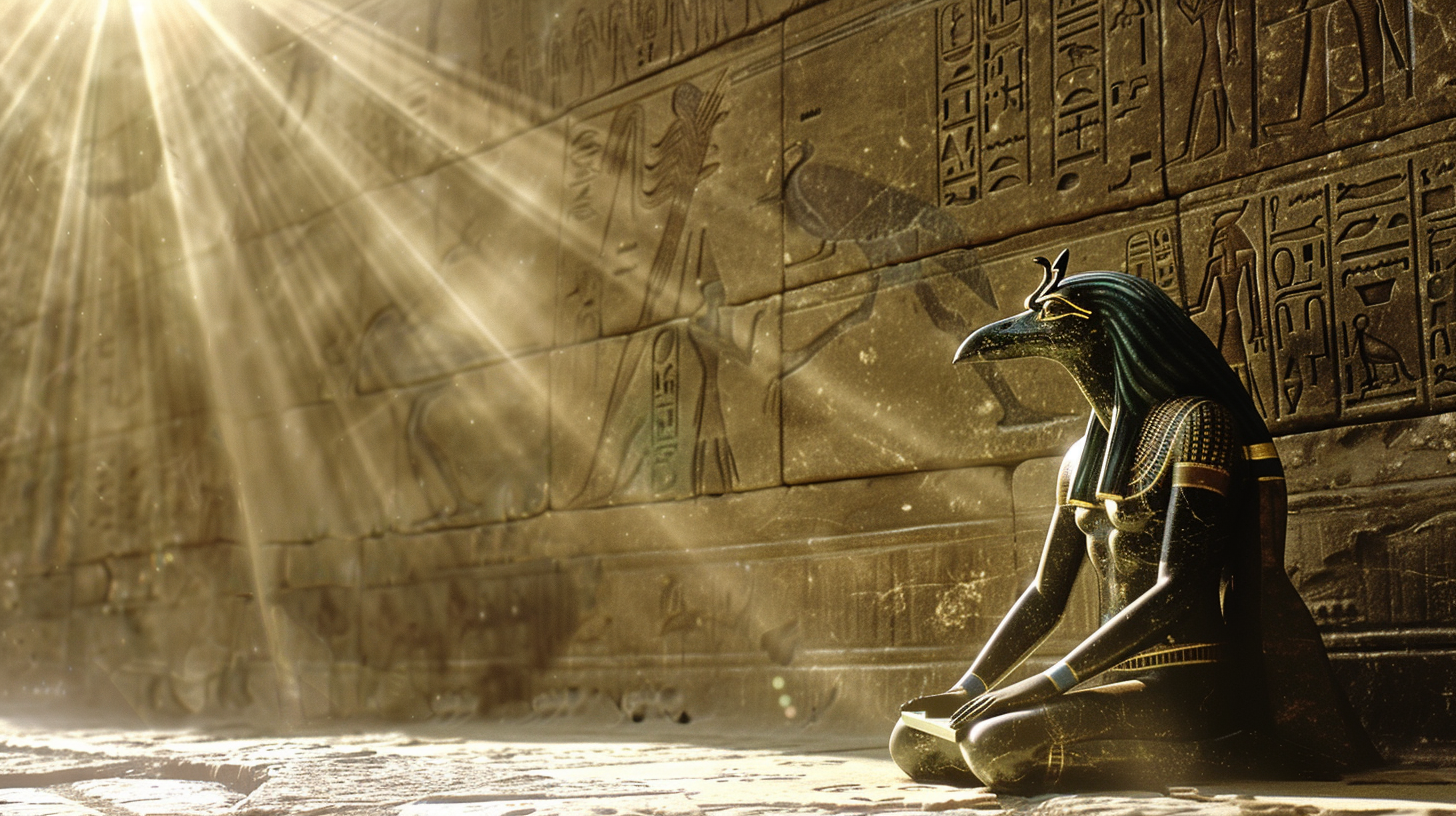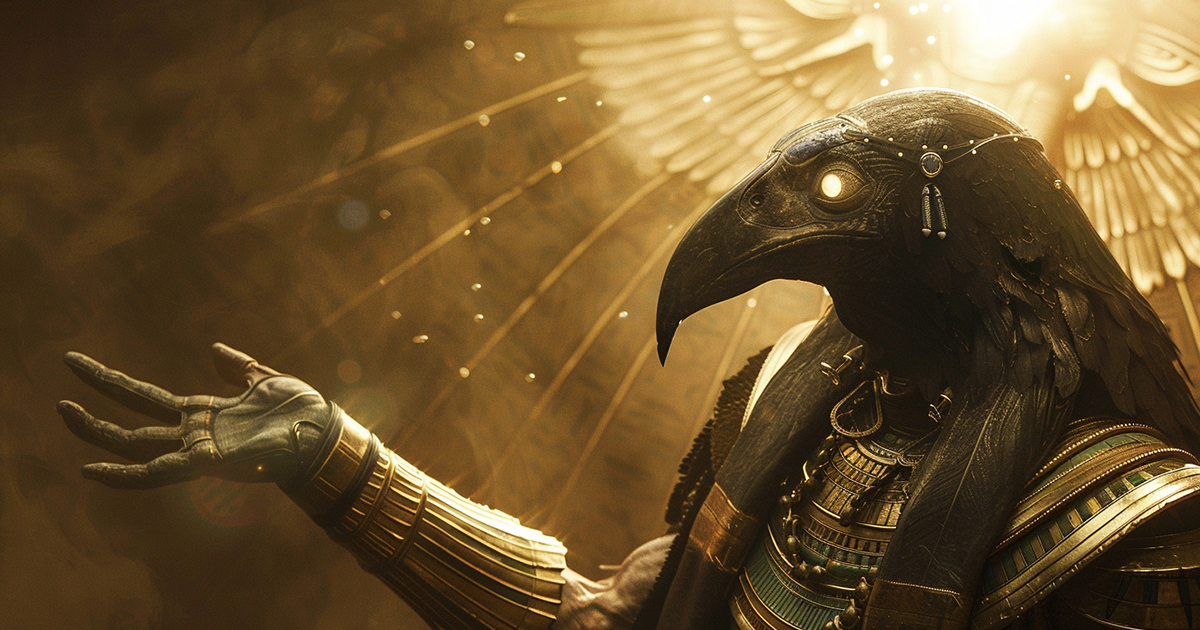Within the intricate tapestry of ancient Egyptian deities, one figure stands out – Thoth, the deity linked to wisdom, writing, and magic. As per Egyptian beliefs, Thoth played a vital role in shaping human history by sharing knowledge and wisdom with humanity. The mysterious parallels between Thoth’s myth and contemporary considerations of encounters with extraterrestrial beings have initiated discussions on the deity’s cryptic origins and impact. Let’s venture into the aura enveloping Thoth’s narrative and expose the captivating links it might hold with the concept of cosmic intervention in antiquity.
Known as Djehuty in ancient Egyptian hieroglyphs, Thoth is often depicted as a man with the head of an ibis or a baboon, symbols denoting wisdom and lunar influences. Acknowledged for various achievements like inventing writing, establishing laws, and designing the calendar, Thoth is revered as the celestial chronicler, tasked with recording the actions of both deities and humans.
An interpretation of Thoth’s legend proposes the idea that he could have been an extraterrestrial entity who descended to Earth millennia ago, sharing advanced knowledge and technologies with humanity. Advocates of this notion highlight Thoth’s pivotal role in advancing human civilization as evidence of his extraterrestrial lineage. They posit that the breadth of Thoth’s teachings, which encompass written language and mathematical principles, surpasses mere human capabilities.

Furthermore, Thoth’s narrative bears similarities to contemporary accounts of encounters with extraterrestrial beings and their interventions. Narratives of celestial entities descending from the cosmos to share wisdom with humanity are found in diverse global cultures, indicating a common thread of extraterrestrial involvement in ancient myths. Some theorists speculate that these ancient tales might have originated from actual encounters with advanced beings from distant worlds, with Thoth standing as a prime exemplar.
Nevertheless, skeptics present alternative interpretations of Thoth’s legend, cautioning against attributing divine or cosmic origins to the deity. They suggest that Thoth’s tale could symbolize humanity’s pursuit of knowledge and wisdom, carrying symbolic weight rather than literal truth. With no concrete evidence of extraterrestrial visitations in ancient Egypt, the essence of Thoth’s influence remains a matter of speculation.
Another viewpoint on Thoth’s myth proposes that he might have been a historical figure or legendary hero, whose actions and teachings evolved into myth over time. In the complex realm of ancient Egyptian spirituality, steeped in symbolism and allegory, it is plausible that Thoth’s persona as a wise and compassionate deity was embellished in religious tales and depictions.
In conclusion, the legend of Thoth remains an enduring enigma that inspires contemplation on the origins of human wisdom and civilization. Whether perceived as a celestial chronicler, a benevolent deity, or an extraterrestrial emissary, Thoth’s legacy perseveres as a symbol of knowledge and enlightenment in Egyptian mythology. Regardless of his true essence, the tale of Thoth stands as a testament to humanity’s ceaseless quest for wisdom and enlightenment across the annals of history.
